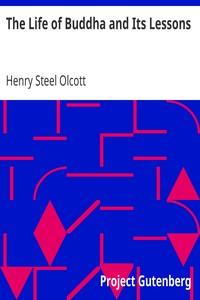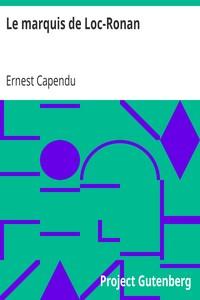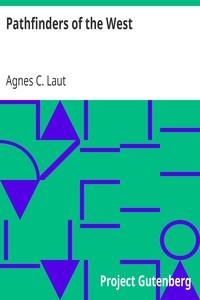|
|
Read this ebook for free! No credit card needed, absolutely nothing to pay.Words: 109164 in 22 pages
This is an ebook sharing website. You can read the uploaded ebooks for free here. No credit cards needed, nothing to pay. If you want to own a digital copy of the ebook, or want to read offline with your favorite ebook-reader, then you can choose to buy and download the ebook.

: Life and Public Services of John Quincy Adams Sixth President of the Unied States With the Eulogy Delivered Before the Legislature of New York by Seward William Henry - Presidents United States Biography; Adams John Quincy 1767-1848; United States Politi@FreeBooksTue 06 Jun, 2023 hese energetic and resolute expressions which Daniel Webster wrought into so magnificent an imaginary speech, in his glowing Eulogy on John Adams and Thomas Jefferson. John Adams continued in Congress throughout the sessions of 1775 and 1776, and on all occasions was an intrepid and earnest advocate for Independence. On his motion, George Washington was appointed Commander in Chief of the Army. John Adams was the mover of Independence in the Congress. On the 6th of May, 1776, he brought the subject before that body, by a resolution expressed as follows:-- "Whereas it appears perfectly irreconcilable to reason and good conscience, for the people of these Colonies now to take the oaths and affirmations necessary for the support of any government under the crown of Great Britain, and it is necessary that the exercise of every kind of authority under the said crown should be totally suppressed, and all the powers of government exerted under the authority of the people of the Colonies for the preservation of internal peace, virtue, and good order, as well as for the defence of their lives, liberties, and properties, against the hostile invasion, and cruel depredations of their enemies:--Therefore, it is recommended to the Colonies to adopt such a government as will, in the opinion of the representatives of the people, best conduce to the happiness and safety of their constituents, and of America." This resolution was adopted, and was followed by the appointment of a committee, on the motion of Richard Henry Lee, seconded by John Adams, to prepare a Declaration. This committee consisted of Thomas Jefferson, John Adams, Benjamin Franklin, Roger Sherman, and Robert R. Livingston. Jefferson and Adams were a sub-committee, and the former prepared the Declaration, at the urgent request of the latter. Jefferson bore this testimony to the ability and power of John Adams.--"The great pillar of support to the Declaration of Independence, and its ablest advocate and champion on the floor of the House, was John Adams." On the day after the Declaration of Independence was adopted, he wrote the memorable letter in which he said with prophetic unction,--"Yesterday the greatest question was decided that ever was debated in America; and greater, perhaps, never was or will be decided among men. A resolution was passed without one dissenting Colony, 'That the United States are, and of right ought to be, free and independent States.' The day is passed. The fourth day of July, 1776, will be a memorable epoch in the history of America. I am apt to believe it will be celebrated by succeeding generations as a great anniversary festival. It ought to be commemorated as the day of deliverance, by solemn acts of devotion to Almighty God. It ought to be solemnized with pomps, shows, games, sports, guns, bells, bonfires, and illuminations, from one end of the continent to the other, from this time forward, forever. You may think me transported with enthusiasm, but I am not. I am well aware of the toil, and blood, and treasure, that it will cost to maintain this Declaration, and support and defend these States: yet through all the gloom, I can see that the end is worth all the means; and that posterity will triumph, although you and I may rue, which I hope we shall not." From this time, until November 1777, John Adams was incessantly employed in public duties in Congress, during the session of that body; and during its recess, as a member of the State Council in Massachusetts. During this period, John Quincy was instructed at home, by her who, in long after years, he was accustomed to call his almost adored mother, who was aided by a law-student in the office of his father. EDWARD EVERETT, in his Eulogy upon John Quincy Adams, made the very striking and just remark, that there seemed to be in his life no such stage as that of boyhood. While yet but nine years old, he wrote to his father the following letter: Braintree, June 2nd, 1777. DEAR SIR, I love to receive letters very well; much better than I love to write them. I make but a poor figure at composition. My head is much too fickle. My thoughts are running after bird's eggs, play and trifles, till I get vexed with myself. Mamma has a troublesome task to keep me a studying. I own I am ashamed of myself. I have but just entered the third volume of Rollin's History, but designed to have got half through it by this time. I am determined this week to be more diligent. Mr. Thaxter is absent at Court. I have set myself a stint this week, to read the third volume half out. If I can but keep my resolution, I may again at the end of the week give a better account of myself. I wish, sir, you would give me in writing, some instructions with regard to the use of my time, and advise me how to proportion my studies and play, and I will keep them by me, and endeavor to follow them. With the present determination of growing better, I am, dear sir, your son, JOHN QUINCY ADAMS. P. S. Sir--If you will be so good as to favor me with a blank book, I will transcribe the most remarkable passages I meet with in my reading, which will serve to fix them upon my mind. After making all just allowance for precocity of genius, we cannot but see that the early maturity of the younger Adams proves the great advantage of pure and intellectual associations in childhood. Free books android app tbrJar TBR JAR Read Free books online gutenberg More posts by @FreeBooks
: The Life of Buddha and Its Lessons by Olcott Henry Steel - Gautama Buddha Buddhism@FreeBooksTue 06 Jun, 2023

: Ways of Wood Folk by Long William J William Joseph Copeland Charles Illustrator - Animal behavior Animals-Wild@FreeBooksTue 06 Jun, 2023
|
Terms of Use Stock Market News! © gutenberg.org.in2025 All Rights reserved.






